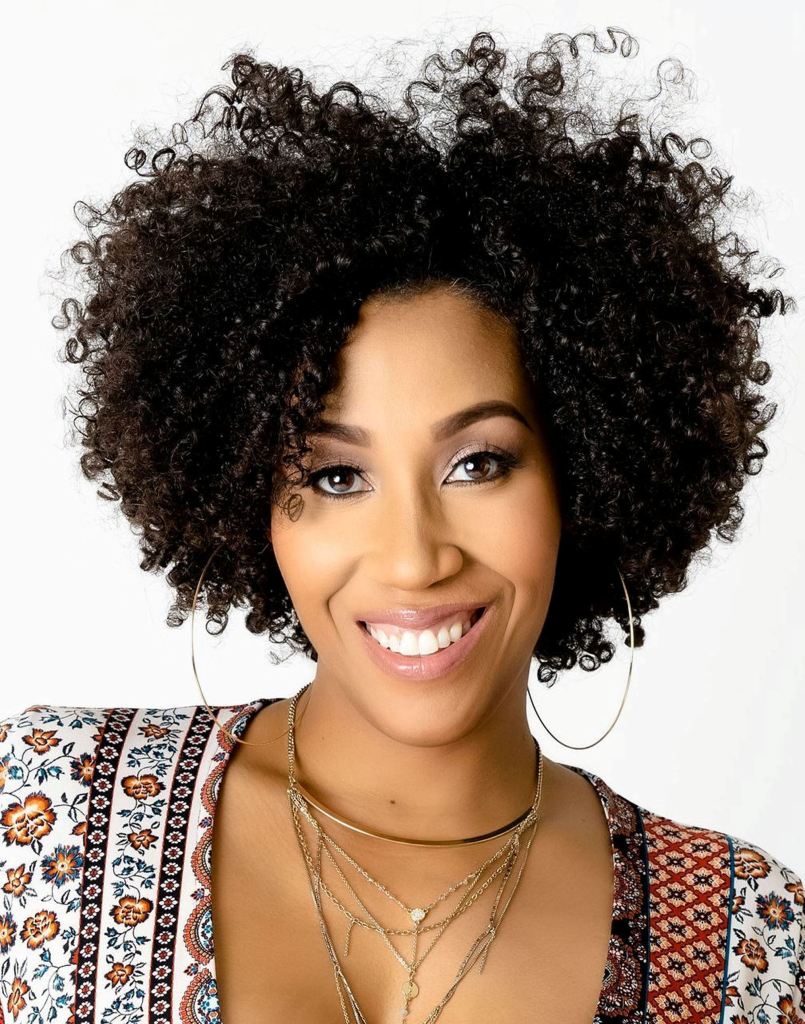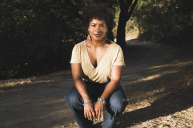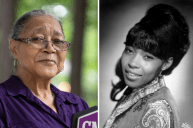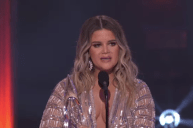For years, country singer-songwriter Rissi Palmer noticed the same small group of names mentioned in conversations about race in country music. Those names included Charley Pride, one of only two Black artists to be inducted into the Grand Ole Opry, and the trailblazing legend Linda Martell, the first Black female solo artist to perform on the Opry stage. She began to wonder: how many stories, past and present, weren't being told?
The North Carolina-based artist, who, in 2007, became the first Black woman to have a single on the country charts in 20 years, has long been a student of history and country music. So she threw herself even further into research, poring over books, such as Charles L. Hughes' Country Soul: Making Music and Making Race in the American South, and began having conversations with fellow artists.
The result is Color Me Country, an Apple Music Country radio show that spotlights Black, Indigenous and Latinx artists in country music.
"I know so many country artists of color and a lot of their stories never get told, or they just never get an opportunity to kind of break to the next level," Palmer tells Wide Open Country. "So I thought it would be interesting to sit down and to talk to them and find out, you know, 'tell me about your experience' and 'tell me what's going on with you' ...Before I knew that [Apple Music Country] was gonna come along and all these other things, I was like, maybe someday there will be a kid or an artist like me and they'll be able to look this up and they can hear these stories and know that: number one, they're not weird, and number two, they're not alone. That's what kind of compelled me to tell the story and to do the show."
Through the show, Palmer shares music and conversations with artists such as Mickey Guyton, Darius Rucker, Miko Marks, Yola, Chapel Hart, Lizzie No and Valerie Ponzio, and scholars such as Jada Watson and Amanda Martinez.
Color Me Country spotlights the vast library of music from BIPOC country artists whose contributions to the genre have all too often been erased. Through both music and education, Palmer and her guests combat years of misinformation about country music's past with indisputable facts.
Unveiling Hidden Histories
In the 1920s, the record industry created the category of "race" records and "hillbilly music," creating a divide between both country musicians and country audiences. "Hillbilly music," marketed to white audiences, was later rebranded as country music, effectively erasing Black artists' role in helping to create it.
In a 2020 Rolling Stone article written by Elamin Abdelmahmoud, country, blues and old-time music artist Rhiannon Giddens explained how Black musicians were forbidden from entering fiddle competitions in order to paint old-time and roots music as inherently white. ("Folk festivals were thinly-veiled attempts to recast the music as white mountain music, as part of a project to create a white ethnicity," Giddens said.)
"It was a really genius piece of marketing that was done so many years ago to split music into the genres and to racialize splitting the genres," Palmer says. "There was a time when half of the string bands you would see back in the 1800s were Black string bands. It wasn't strange or special or unicorn-like to see a Black person holding a banjo or a fiddle or any of those kind of things."
Through sharing unheard or under-reported stories, Palmer is doing her part to dispel the myth of country music's origins and give artists such as Lesley Riddle, who accompanied A. P. Carter on his "song-hunting" trips throughout the south and taught Maybelle Carter her trademark guitar technique, and Rufus "Tee Tot" Payne, a blue musician who mentored Hank Williams, their long overdue credit.
"It's really important to me for everyone... to feel ownership of this music," Palmer says. "It's all of our music. It's the music of the people here in this country. It's the music of all of us. I feel like knowing more about who started it and who these people were and more of these behind-the-scenes, kind of hidden stories, it changes the way it looks and it changes the way you listen and it can expand your your musical palette. All of a sudden it's like, 'Well, let me find out more about Lesley Riddle or let me see if I can find some 'Tee Tot' Payne music.'"

Chris Charles
"I think that once you learn the history of something...it changes your perception and you can't ever go back to the way that you used to see it, because now you have a fuller picture of it," Palmer continues. "You can't discriminate. You can't have prejudices when you know. When you know better, you do better.... That's what I want the show to be."
Among the unsung heroes Palmer is celebrating is Linda Martell, the inspiration for the title Color Me Country, which comes from Martell's 1970 album of the same name. Martell was honored with the CMT Equal Play Award during the 2021 CMT Music Awards.
"Linda is my hero because she was very much authentically and unapologetically herself," Palmer says. "She came into this just because of a genuine love of music. She wasn't trying to change the world. She wasn't trying to do anything crazy like 'I'm going to be the first Black woman to ever play on the Grand Ole Opry. That wasn't her thought process. It was just like, 'I love to sing. I'm a great singer and I wanna do this. I love this music and I wanna do this.' She faced so much adversity. She faced hurdles that you wouldn't believe. This was 1968 when her first single came out. Think about what was going on in the United States in 1968 and what a daunting task it was to walk out on a stage where nobody looks like you and nobody standing behind you looks like you."
Palmer says she feels particularly connected to Martell.
"It's never easy to be the first and she did it with such grace. Her story resonates with me because I feel like, in a lot of ways, had I not had the funds and the technology to continue my career after I left my record company and to do it on my own, that my story would've been very much like hers," Palmer says. "She's one of the many unsung heroes for people like me and I'm very excited to celebrate her."
By spotlighting BIPOC country artists, Palmer is not only providing a platform for artists, she's also ensuring that generations of country fans, young and old, see themselves reflected in the music they love.
"I get messages all the time from people that are just like, 'I grew up listening to country music and I always thought that I was odd, or people made fun of me because I'm the only Black girl that listens to this....now I see that this is just as much my music as it is anybody else's'," Palmer says. "That feels great. It's nice to be the reflection for people when you didn't necessarily have that reflection."
Rissi Palmer recently announced the Color Me Country Class of 2022, featuring Tony Evans, Jr., Joy Clark, Madeline Edwards, Michael B. Whit, Julia Cannon and Tae Lewis.
This Sunday, Jan. 16 at 7pm et, meet the @colormecntry Class of 2022!!! This group cover folk, Americana, and Country. From left to right: Tony Evans Jr. (@itsTonyEvansJr ),Joy Clark (@JoyClarkMusic ), Madeline Edwards (@madelinemaking ), Michael B. Whit (@MichaelBWhit1 ), pic.twitter.com/8I0v9jHLc5
— Color Me Country Radio w/ Rissi Palmer (@colormecntry) January 14, 2022
Palmer, who released her most recent album Revival in 2019, will perform at Merlefest in North Carolina in April. For a full list of tour dates, visit her official website.
To support the Color Me Country Artist Grant Fund, visit here.




